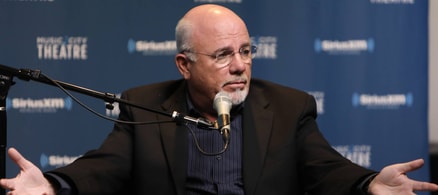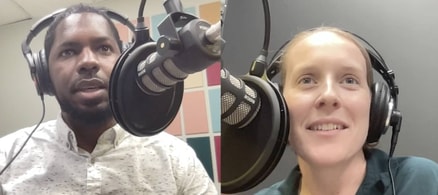Breaking the stigma
About two-thirds of parents and teens report that money is one of their most talked-about topics in the past six months — second only to the pandemic — according to new data from U.S. fintech company Greenlight.
Ninety-seven percent of parents also said they believe financial knowledge and skills are necessary for their kids to achieve life goals, and 93% of teens agreed.
“Money has traditionally been a taboo topic, and that’s why it can feel uncomfortable discussing it, even among family at home,” Jennifer Seitz, education content lead at Greenlight, told Money.ca in an email.
More from Money.ca
- With financial discussions more taboo than sex these days, it's time to have 'the talk'
- A good credit score is about more than paying your bills on time
- How a budget can help you bring your money under control
“It’s important for teens to know the personal finance basics so they can be prepared for financial independence in the future. That includes topics like planning, smart spending, saving and investing, and even credit.”
Maximize Your Tax Refund with TurboTax Canada!
Simplify tax season with this user-friendly software. Get step-by-step guidance, maximize deductions, and file with confidence. Trusted by millions, TurboTax Canada ensures accuracy and peace of mind. Start your taxes today and get the refund you deserve
Get the tax refund you deserveTeens may face financial anxiety as well
The Greenlight study reported that gas prices and inflation were the biggest financial stressors for parents and teens — followed by interest rates, taxes, stock market volatility and student loans.
Canada’s inflation rate spiked to a 31-year-high of 6.7% in March. Dhanji says parents should discuss the rising costs of everyday products and services with their teens and use real-life examples, like the cost of gas over the years.
He suggests there’s an opportunity to cut back on the little things, like making your lunch at home instead of buying takeout, or taking public transit instead of purchasing a car.
Seitz adds that many teens may also be working at a part-time or after-school job, which means they need to learn how to manage their income as well.
Dhanji teaches “Dollars and Sense” at elementary and high schools, and speaks at colleges and universities about financial planning. He says peer pressure and social media can play a major role in teenage spending.
“When you're a teen, you just want to fit in … [Try] to help them understand that they don't need the latest gadget, or name brand clothing … and down the road, they’re going to be in a better financial position to do more with their money.”
Teens need to be financially prepared for the future
“As teens get older, they begin thinking more about their life after graduation and are making decisions about college, careers and financial independence,” says Seitz.
Dhanji advises that teens set up a Tax-Free Savings Account (TFSA) as soon as they turn 18 and save up funds for future goals or expenses like their education.
“With my son, I've tried to ingrain that things are getting more expensive, to write your goals down,” he says. “And eventually, if you have enough savings, you'll be able to buy a condo and start home ownership. But, savings have to start right away.”
He suggests teens write down their income and expenses and use budgeting tools so that they’re conscious of how much they’re spending.
A 2021 Greenlight survey also found that 86% of teens are interested in investing, but nearly half haven’t invested because they don’t feel confident, or their parents don’t know how to get them started.
“Like any potential investor, teens should know the level of risk they are comfortable with for their money, because it is possible to lose it,” says Seitz. “It’s safer to spread money over a variety of types of investments.”
Dhanji recommends teens get their financial advice from a reliable source, like FP Canada, as opposed to social media platforms like Reddit and TikTok.
Grow Your Savings Effortlessly with Moka
Automate your savings with every purchase and watch your money multiply. Moka rounds up your transactions and invests the spare change. Start building wealth effortlessly today. Join thousands of Canadians embracing financial freedom with Moka
Sign up nowHow can parents start the conversation about money?
“I recommend starting early, doing some basic budgeting and teaching them a little bit about cost and that they have to be aware of what things cost because without having proper savings, it's going to be really difficult to meet their goals.”
Dhanji says you can also explain compound growth — which he dubs “compound coolness” — and investing, as well as saving money, paying your bills on time and avoiding credit card debt.
He recommends showing teens trends in the stock market, using their favourite brands as examples.
Seitz adds that it’s important to be open and ready for financial questions from your teens.
“Don’t keep money hush hush or shy away from money questions,” she says. “You don’t have to have all the answers to be a trusted source of advice. If you don’t know, you can do a little research and learn together.”
Dhanji also says parents shouldn’t don’t be afraid to reach out to a reliable source for help, like a certified financial planner.
“At the end of the day, we want to make sure our children are responsible, good inheritors.”
Sponsored
Trade Smarter, Today
With CIBC Investor's Edge, kick-start your portfolio with 100 free trades and up to $4,500 cash back.







